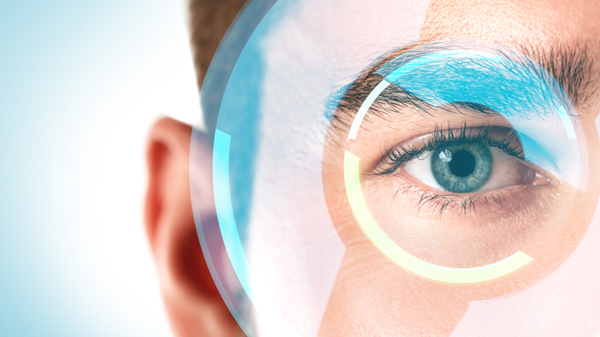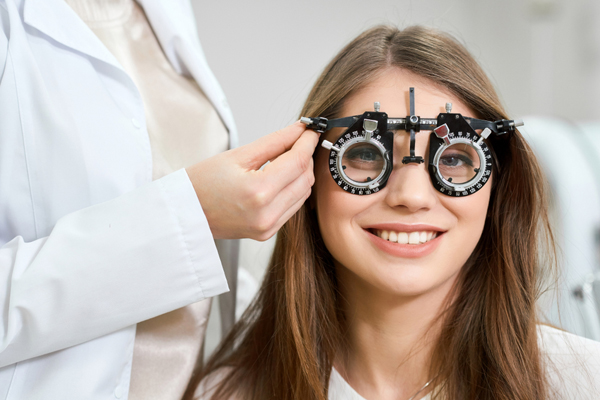What Causes Itchy Eye and How It Can Be Treated

Another word for an itchy eye is ocular pruritis. It is a common health situation in many people. Itchiness in your eyes is more than enough reason to see an optometrist. Receiving prompt treatment is important in receiving prompt relief. If you want to know what causes an itchy eye and the treatments for it, here are the details.
The causes
The irritation can act as a powerful distraction to everyday life. Relieving eye itchiness is important. Determining the cause of the itchiness can help the individual get the correct treatment. This can then provide some degree of relief.
Seasonal allergies often come at the same time each year. The triggers are often planted blooms capable of releasing pollen. These minute substances drift in the air. People with pollen allergies breathe them in and then suffer the consequences. Eye redness, nasal congestion, and sneezing are signs and symptoms of an itchy eye from seasonal allergies.
Working on a computer for hours can cause eyestrain. This can result in an itchy eye. Forcing to be awake also strains the eyes. Other people experience strain from indoor air conditioning and heating. Airborne irritants can also cause eye itchiness. Smoke, perfumes, incense, and exhaust can cause the eyes to be itchy as well.
Well-lubricated eyes do not itch. A dry eye is a condition in which the eyes lack proper tear production. This deprives the eyes of proper lubrication. Viral, fungal, and bacterial infections can also cause an itchy eye. The most common are pink eye (conjunctivitis) and uveitis.
Using contact lenses too long can trigger an itchy eye. Lenses lacking proper care can also lead to eye irritation. Blepharitis is the inflammation of the eyelids. This happens when there is a blockage in the oil glands at the base of the eyelashes.
The treatments
Relief for an itchy eye can start with the avoidance or removal of allergy triggers. Closing windows and using a dehumidifier at home can help. Wrap-around sunglasses, when stepping out, can shield the eyes from pollen and other irritants. Showering daily can also help remove dust and debris from the skin near the eyes. Changing pillowcases and bedsheets also help keep dust and other particulates from the eyes. Washing hands after handling animals is also ideal for avoiding irritants.
A cold compress can give temporary relief to an itchy eye as well. Wrapping a small bag of ice in a clean piece of cloth is enough to place on the eyes. Chilling some artificial tears and then using them can relieve the symptoms. An optometrist can prescribe oral medications or anti-allergy medications for an itchy eye. Some of these are over-the-counter medications.
The itchiness can sometimes be too much to bear. Scratching the eyes will only make the situation worse. Avoiding touching the eyes can help reduce irritation. It can also prevent the eyes from developing infections and abrasions. Proper lens care and hygiene can reduce itchiness as well.
Preventing itchy eyes
Eye itchiness from an allergy needs a diagnosis of what the allergen is. Removing the source of the allergy is an important step in ending the eye itching. Dander, dust, and some medications may cause allergic reactions. Using an air purifier, regular vacuuming, and a change in prescription medications can help stop the itchiness.
Avoiding strong smells, dry air, pollen, wind, dust, and very long screen time can also prevent eye dryness and itchiness. Using hypoallergenic products and proper eye protection can prevent irritants from getting into the eyes. Increasing one’s intake of foods rich in omega-3 fatty acid and vitamin A can help with eye health as well. Below are other ways to prevent eye itchiness:
- Blink more often when writing an email or watching a movie
- Use a humidifier when indoors
- Drink more water for more lubrication
Rubbing eyes should not be a way to get relief
This method of relief can damage the eyes. Rubbing the eyes can even cause more itching. Making a habit of this can scratch the cornea, especially when there is a foreign object irritating the eyes. Placing a cool, clean, damp piece of cloth over closed eyes is better. Lubricating eye drops or artificial tears can also help until the patient can see an eye doctor.
Determining the cause of your itchy eye can give you the proper treatment
Eye irritation is bothersome. It can prevent you from going through the day. Close work can also be difficult if your eyes are not in optimal condition. Seeing an optometrist for an itchy eye treatment can help you regain your eye health. Your eye care provider can determine the cause and provide the right treatment as well.
Get more information about Bright Eyes Optometry in Mt Vernon at https://brighteyesmv.com.
Check out what others are saying about our services on Yelp: Read our Yelp reviews.
Recent Posts
Emergency eye care is needed if you find yourself dealing with a problem with your eye that causes pain or affects your vision. Failing to treat eye injuries as soon as they are detected can lead to permanent consequences, like reduced vision or blindness. Common eye injuries that require emergency eye care include: Exposure to…
Looking for more information on eye protection? An ophthalmologist knows everything there is to know about protecting the eyes. While there are a few different types of eye care professionals, ophthalmologists are eye care professionals who have undergone additional years of education and training so they can offer their patients both medical and surgical eye…
Controlling myopia at an early age can slow down its progression. This can help prevent yearly upgrades for stronger glasses. Your optometrist can help by offering various treatments. If you want to find out how your optometrist can help control myopia, here are the details.Optometrists use atropine eye drops to achieve short-term myopia control results.…
An ophthalmologist is a medical or osteopathic doctor who specializes in eye and vision care and is licensed to practice medicine and surgery. Eye care is an important part of one's overall health care. Read on to learn more about choosing the right eye-care professional for you.During a checkup, the eye doctor will first take…



